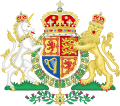| Part of a series on |
| Scots law |
|---|
 |
The senators of the College of Justice in Scotland are judges of the College of Justice, a set of legal institutions involved in the administration of justice in Scotland. There are three types of senator: Lords of Session (judges of the Court of Session); Lords Commissioners of Justiciary (judges of the High Court of Justiciary); and the Chairman of the Scottish Land Court. Whilst the High Court and Court of Session historically maintained separate judiciary, these are now identical, and the term senator is almost exclusively used in referring to the judges of these courts.
Contents
- History
- List of senators
- Inner House
- Outer House
- Chair of the Scottish Land Court
- Retired judges
- See also
- References
- External links
Senators of the college use the judicial courtesy title of Lord or Lady along with a surname or a territorial name. Note, however, that some senators have a peerage title, which would be used instead of the senatorial title. All senators of the college have the honorific, The Honourable , before their titles, while those who are also privy counsellors or peers have the honorific, The Right Honourable . Senators are made privy counsellors upon promotion to the Inner House, the senior part of the Court of Session.
Under section 11 of the Treason Act 1708, it is treason to kill a senator of the College of Justice "sitting in Judgment in the Exercise of their Office within Scotland".

